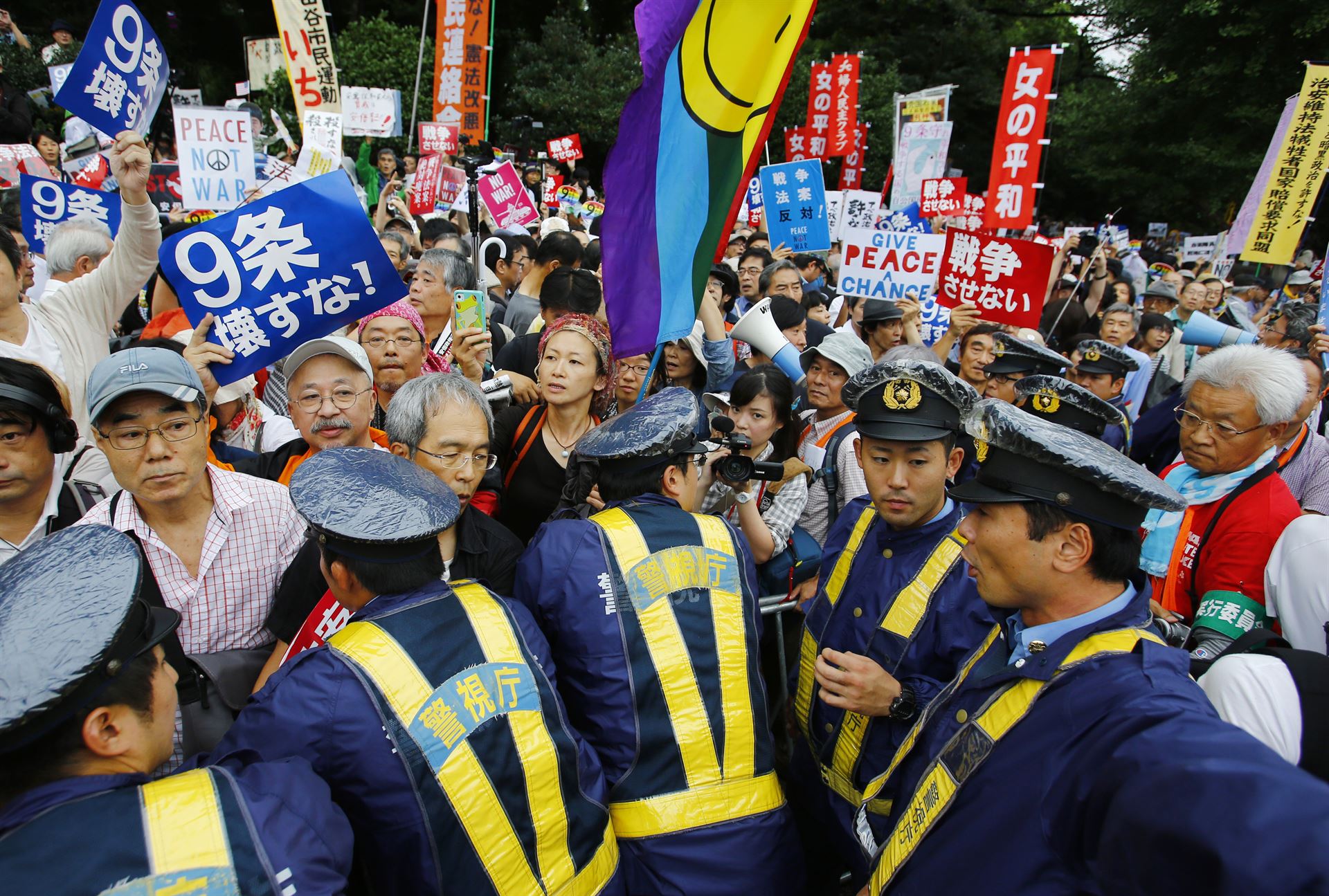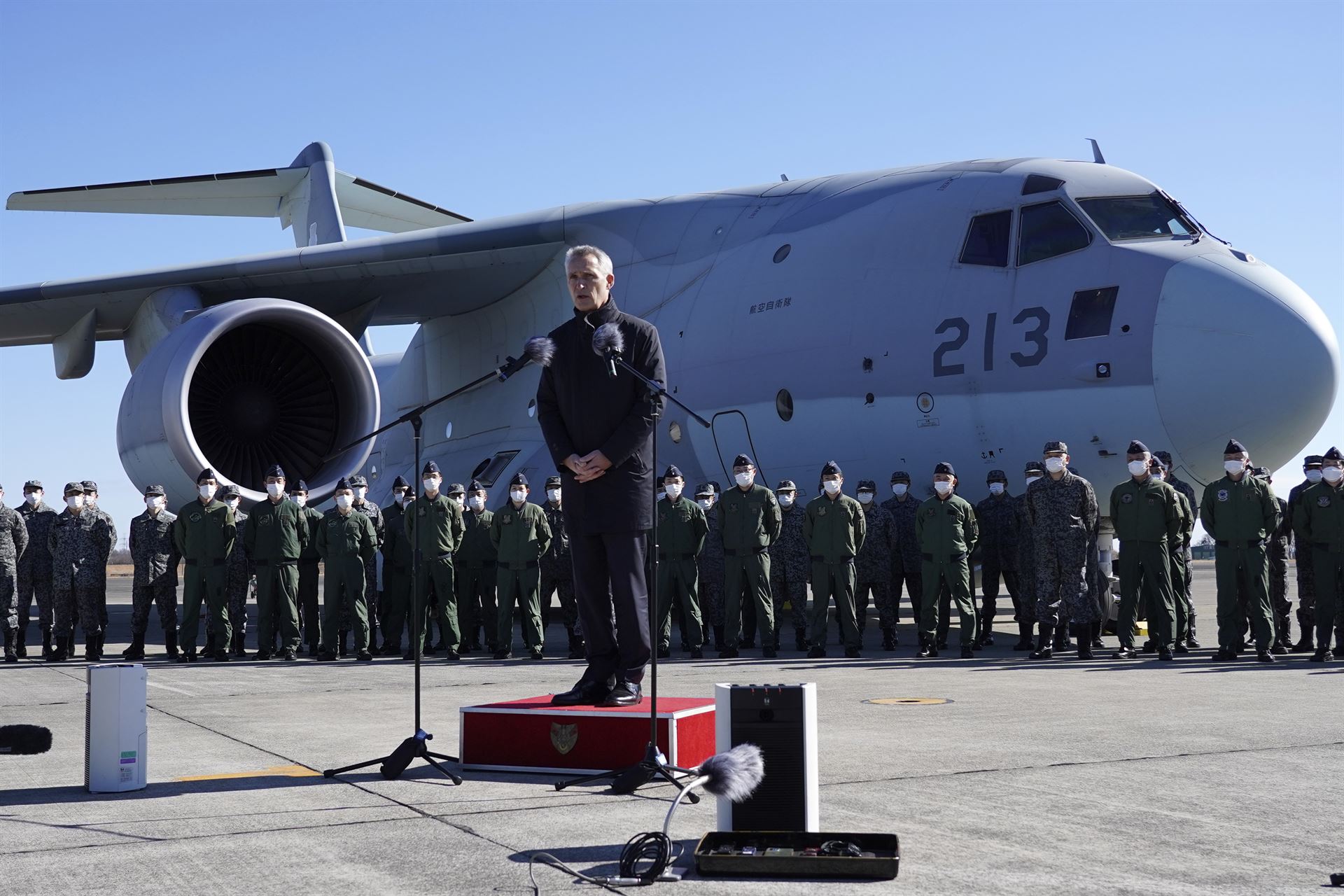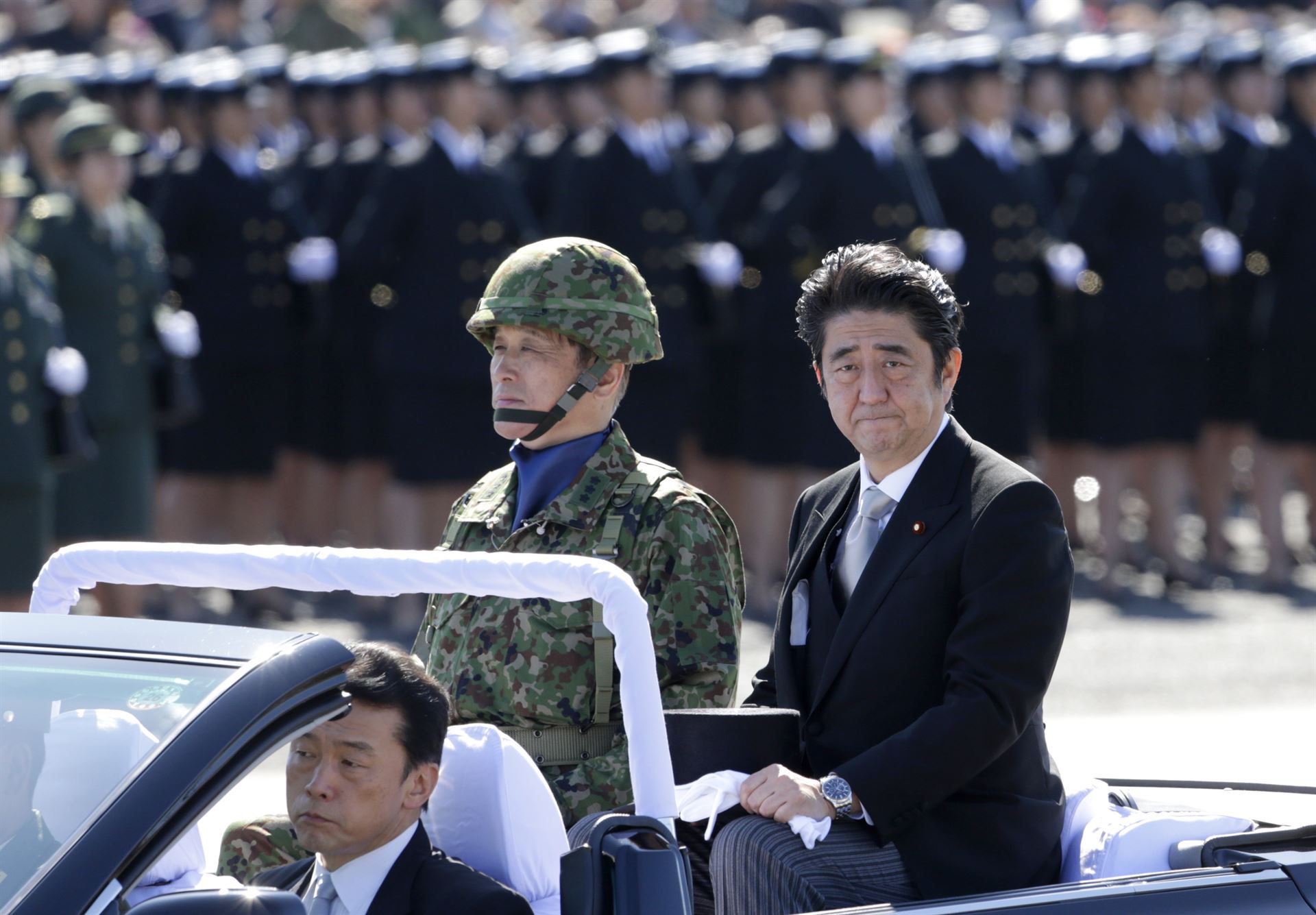
Japanese citizens are voicing strong objections to the government’s attempts to amend the nation’s pacifist Constitution and rapidly expand the military.
Naohiko Hasegawa, a Tokyo-based lawyer, said he is absolutely against the revision of Article 9 of the Constitution of Japan, which renounces war.
However, recently, due to the significant influence of the media, there are many who intentionally use the situation with China or the Democratic People’s Republic of Korea as a basis to advocate for constitutional revision, he said.
ALSO READ: Japan drifting further from its war-renouncing constitution
Japan’s ruling Liberal Democratic Party, or LDP, agreed on Monday that it will seek to specifically mention the name of the Self-Defense Forces in a revised Constitution. This decision outlines key proposed changes as the party prepares for an upcoming election to select its new leader. The LDP plans to retain the wording of the war-renouncing Article 9 while adding a new section to explain the Self-Defense Forces, Kyodo News reported.
READ MORE: Russian envoy: US-Japan alliance posing nuclear threats to neighbors
The LDP’s panel on constitutional reform made this decision, which will influence whoever wins the party leadership election on Sept 27. In this race, candidates are expected to clearly state their positions on revising the Constitution, which has been in force since 1947, according to the Japanese news agency.
Japanese government officials claim that changes in the security environment necessitate military expansions, but what they are proposing, including acquiring the capability to strike enemy bases, is extremely dangerous from the perspective of neighboring countries, said Kohei Aoyama, 33, a member of the Democratic Youth League of Japan.
“Officials are preparing to acquire the latest missiles, which can directly strike targets in countries like China or (the DPRK). Japan’s push for this large-scale military buildup will likely lead those countries to escalate their own military expansions, resulting in an uncontrollable arms race,” said Aoyama.

While there are many hawkish members of the LDP who prioritize military expansion and preparation for conflict with China alongside the United States, or who wish to amend the Constitution, the public is less interested in these matters and more concerned with improving their everyday lives, said Shigeaki Koga, a policy analyst and a former official of Japan’s Ministry of Economy, Trade and Industry.
Currently, many conservative members of the LDP, particularly those in the faction formerly led by late prime minister Shinzo Abe, support such an amendment, and winning their support is crucial for any candidate aspiring to the LDP presidency. As a result, candidates tend to emphasize the importance of amending Article 9 to gain the support of these members. However, the public is not particularly keen on this issue, instead urging the government to focus on economic measures, said Koga.
READ MORE: Moscow says will respond if Japan shifts nuclear-free policy
“Despite this discrepancy between the public’s priorities and the LDP’s internal dynamics, the party’s presidential election structure tends to favor those who emphasize constitutional revision due to the decisive influence of lawmakers’ votes in the final runoff. However, this focus on Article 9 is not aligned with the public’s desires,” he said.
Opinion polls conducted by Japanese public broadcaster NHK and major newspapers show that the percentage of Japanese citizens who favor revision of the Constitution is low.
READ MORE: Russia envoy: Peace pact talks with Japan 'impossible' for now
“The public is more concerned about improving their livelihoods and social security than about constitutional revision. Yet, the LDP is pushing for this because of its inherently conservative nature, which is a big problem,” said Takakage Fujita, president of the Alliance to Stop the Impermissible Acts of Slush Fund and Tax Evasion by the LDP.
Igarashi Hajime, a 66-year-old resident of Tokyo, is firmly against revising the Constitution.
“Thanks to Article 9, Japan has managed to stay out of wars alongside the United States, even when pressured by the US. Past prime ministers like Kakuei Tanaka used Article 9 as a safeguard to refuse such demands,” Hajime said during a rally in Tokyo last week to oppose the proposed constitutional changes.
He emphasized that Article 9 has kept Japan from deploying the Self-Defense Forces in wars, thereby avoiding casualties and potential retaliation, including terrorism, from other nations. “Without Article 9, our way of life could be drastically different,” he added.
Hajime is convinced that military force should be a last resort, only considered after exhausting all diplomatic options. “It’s crucial to seek compromises and coexist peacefully with other nations,” he said.

Toshihiro Inoue, a special committee member of the Japan Congress against A- and H-Bombs, believes that Japan cannot truly protect its people by strengthening its military power. Instead, he argues that Japan should focus on fostering friendship and goodwill with its neighboring countries, guided by the principles of the Constitution.
Fumiko Ohno, a 77-year-old Tokyo resident, sees the Constitution of Japan as something the nation can “take pride in globally” because of Article 9, which renounces the use of force to settle international disputes.
“As prime minister, it is not permissible to remove Article 9 or any part of it. The responsibility to protect this Constitution lies not with the people, but with members of parliament, ministers, and most importantly, the prime minister. Yet, this obligation is being violated, as the leader of the LDP is now attempting to propose a constitutional amendment,” said Ohno.
READ MORE: US-Japan Patriot missile plan ‘hits Boeing component roadblock’
Keisuke Okamoto, a 49-year-old resident of Yokohama, stressed that war could lead to the extinction of humanity. Speaking on behalf of many who oppose Japan’s massive military buildup, he said, “The Constitution was founded on the principle of peace, shaped by reflections on the post-war era, and we are committed to protecting it.”
Okamoto expressed his disapproval of the Japan Self-Defense Forces essentially becoming subordinate to the US military under the Guidelines for Japan-US Defense Cooperation. He pointed out that the concept of “surrounding areas” in these guidelines lacks a clear geographical definition, allowing the Self-Defense Forces to provide support anywhere, not just in areas surrounding Japan.
READ MORE: Japan's military to spend on AI, automation, perks to combat recruitment crisis
“Ideally, instead of aligning with major powers like the G7, we should join forces with smaller Asian nations. East Asian issues should be managed by Asian countries, and we should work toward peaceful relations with China, South Korea and all neighboring nations,” Okamoto said.
Ohno echoed these sentiments, emphasizing that Japan, the Republic of Korea and China are economically interconnected and geographically inseparable.
“Our relationship is deeper than that with the United States. It is a grave mistake for a distant country like the US to interfere and attempt to provoke conflict between Japan and China,” Ohno said.


